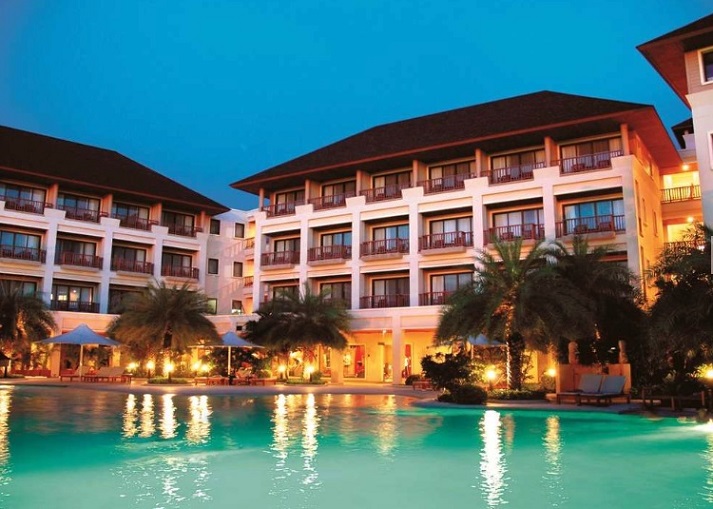
Bangkok Hotel News: Sustainability Reckoning for Thai Hospitality Sector
Thailand’s hospitality industry, long a darling of international tourism and a key contributor to the nation’s economy, is on the brink of an unprecedented transformation. At the heart of this shift are new European Union (EU) regulations that will soon govern how global businesses—hotels included—manage their environmental and social responsibilities. While over 20,000 Thai hotels currently list their properties on platforms like Booking.com and Agoda, the majority of these establishments are ill-prepared to meet the looming requirements of the EU’s Corporate Sustainability Reporting Directive (CSRD) and the Corporate Sustainability Due Diligence Directive (CSDDD).

These directives, scheduled to take full effect by 2026, aim to promote transparency and accountability across global supply chains. For the Thai hotel industry, this means more than just ticking boxes—it requires a full-scale integration of sustainable practices. Under these regulations, any hotel that operates as part of an EU-linked supply chain—either directly or indirectly through platforms owned by European companies—must comply with rigorous environmental, social, and governance (ESG) standards.
According to a recent analysis by the Economic and Business Research Centre of Siam Commercial Bank (SCB EIC), the ramifications are vast and profound. This Bangkok Hotel News report finds that failure to adapt could sideline a significant portion of Thailand’s hotel sector, particularly among the many smaller, independently operated properties that lack both the resources and the awareness needed to navigate this sea change.
Green Mandates Driven by Global Expectations
The CSRD and CSDDD not only aim to foster sustainability but also to ensure ethical operations within global tourism. Hotels that wish to maintain visibility on major OTAs like Agoda and Booking.com—which are both owned by Netherlands-based Booking Holdings—must now obtain internationally recognized sustainability certifications. These include globally respected labels such as Green Key, Green Globe, Travelife, EarthCheck, and Thailand’s Green Hotel Plus, which has recently been recognized by the Global Sustainable Tourism Council (GSTC).
As the EU tightens its environmental compliance net, European tour operators who package and sell Thai vacations are also being drawn into the regulatory fold. The message is unambiguous: whether directly or through intermediaries, Thai hotels must meet global standards or risk being cut off from a vital source of bookings and revenue.
This is particularly concerning given the magnitude of Thailand’s reliance on European tourism. Out of the 35 million international tourists visiting Thailand each year, approximately 20% hail from Europe. More than half of them book accommodations through online travel agencies (OTAs), and over a third use European tour operators. The potential loss of this demographic due to non-compliance could severely dent the revenue streams of countless Thai hotels.
Lagging Behind Competitors
The path to sustainability in Thailand’s hotel sector is still at a nascent stage. SCB EIC’s findings reveal that Thai hotels emit approximately 43.4 kg of carbon dioxide equivalent (kgCO2e) per occupied room—substantially higher than the averages recorded in Japan, Singapore, France, and Italy. Despite the pressing need for change, only around 100 hotels in Thailand—less than 1%—currently possess international sustainability certifications.
These certified hotels are largely concentrated in urban and tourist-heavy hubs like Bangkok and Phuket, where larger chain brands dominate. Smaller operators, particularly in less-developed provinces, face immense hurdles in adopting green practices. These include financial constraints, lack of trained personnel, inadequate access to knowledge about sustainability frameworks, and lingering financial wounds from the COVID-19 crisis.
To address these challenges, SCB EIC has recommended a “3T” approach: setting clear targets, encouraging teamwork across departments and suppliers, and initiating transformation by making small but impactful upgrades, such as switching to energy-efficient appliances or adopting waste-reduction strategies.
Navigating the Regulatory Maze
Experts like Jutamas Wisansing, a prominent voice in sustainable tourism development, point out that Thai hotels are now caught in a tightening web of global regulations. Alongside EU directives, the industry is also being shaped by broader frameworks such as the UN Sustainable Development Goals (SDGs), the Paris Climate Agreement, the ISO 14001 environmental management standard, and the Convention on Biological Diversity (CBD).
These frameworks are no longer aspirational—they are becoming codified into law and regulation, especially within the EU. By 2026, Thai tourism operators dealing with European companies must provide verifiable sustainability reports and subject themselves to external audits.
Thapanee Kiatphaibool, Governor of the Tourism Authority of Thailand (TAT), underscores the urgency: “EU companies must ensure their entire supply chain complies with strict ESG standards. This means Thai tourism businesses must adopt sustainable practices at every stage to remain partners with EU companies.”
TAT has responded by launching campaigns and training programs that align with global sustainability goals. However, critics argue that more aggressive and systemic support is required to drive widespread adoption.
Hotels on the Frontline of Change
The pressure is most acutely felt within Thailand’s vast and fragmented hotel industry. While OTAs like Booking.com and Agoda are not yet de-listing uncertified hotels, they are increasingly showcasing certified hotels as preferred partners. These certifications, or lack thereof, directly influence booking decisions among eco-conscious travelers, many of whom are from the European market.
Moreover, the Thai Hotels Association (THA) has expressed concern that the country’s current certification infrastructure is wholly inadequate. Thailand’s Hotel Plus program—administered by the Department of Climate Change and Environment—can only handle about 60 certifications annually. This creates a critical bottleneck in the face of surging demand.
THA president Thienprasit Chaiyapatranun has warned that by 2026, GSTC guidelines will likely require OTAs to feature only certified properties. “Online platforms will only feature certified hotels, starting in Europe,” he stated. “If we don’t ramp up our readiness, thousands of Thai hotels could be cut out of a major source of revenue.”
Government Support Remains Pivotal
Given the scale of the transition needed, hoteliers and experts alike are calling for urgent government intervention. Proposals include the establishment of a green finance fund offering low-interest loans, tax incentives for energy-efficient upgrades, and grants for staff training in sustainable practices.
Incentivizing sustainable transformations through favorable fiscal policies could provide the necessary nudge for small and mid-sized hotels to invest in the future. Without this, Thailand risks losing not only its competitiveness but also its reputation as a forward-thinking tourism destination.
The hotel industry’s move toward sustainability is not just about regulatory compliance—it is about staying relevant in a world where travelers are increasingly driven by values. A commitment to sustainable practices is rapidly becoming a prerequisite, not a luxury.
Thailand at a Defining Crossroads
As the 2026 deadline draws near, Thailand’s hospitality sector finds itself at a defining crossroads. The wave of EU sustainability regulations is not an isolated challenge—it is part of a broader global shift toward responsible tourism, one that values transparency, ethical operations, and environmental stewardship.
For Thai hotels, the path ahead demands bold decision-making and collaborative action. Without systemic change, thousands of hotels—especially independent and boutique properties—face the real risk of being sidelined in the global tourism marketplace. On the other hand, those who embrace this moment and take the necessary steps toward certification and sustainability stand to benefit not only from continued access to lucrative European markets but also from growing global traveler demand for greener, more responsible stays.
Ultimately, the time for passive optimism is over. The call to action has never been louder. With the right mix of policy support, industry initiative, and international collaboration, Thailand can still retain its position as one of the world’s top tourist destinations—this time, leading not just in service and hospitality, but also in sustainability.
For more updates on the EU Sustainability Mandate, keep on logging in to Bangkok Hotel News.
You May Also Like:
Langham Bangkok to Transform Historic Customs House and General Post Office into an Iconic Luxury Hotel
ONYX Hospitality Expands Across Asia with Bold New Openings and a Focus on Quality Over Quantity






